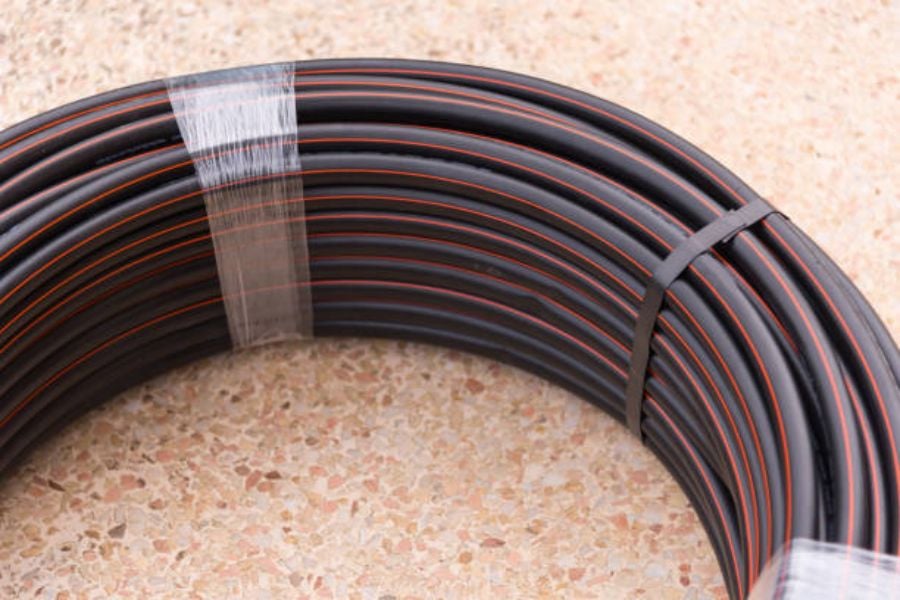pe polyethylene pipe: A Comprehensive Guide
PE polyethylene pipe, also known as high-density polyethylene pipe, has gained popularity as a material of choice for various piping applications because of its durability, versatility, and cost-effectiveness. In this article, we will discuss the different aspects of PE polyethylene pipe that make it an excellent option for different industrial and commercial settings.
What is PE polyethylene pipe?
PE polyethylene pipe is a thermoplastic pipe made from ethylene polymerization. It is known for its high density, tensile strength, and water resistance. PE pipes come in different types, including PE32, PE40, PE63, PE80, and PE100. Each variety is suitable for a specific range of applications and has unique physical and chemical properties.
PE polyethylene pipe applications
PE polyethylene pipes have a wide range of applications because of their unique properties. These pipes are commonly used in gas and water supply, sewage transmission, agricultural irrigation systems, and industrial piping systems. They are also used for firefighting systems and geothermal heating and cooling.
Benefits of using PE polyethylene pipe
Durability:
PE polyethylene pipes have excellent durability and can last for up to 50 years. They are resistant to pressure, temperature changes, and corrosion, making them perfect for industrial and commercial applications.
Flexibility:
PE polyethylene pipes are highly flexible and can bend up to a certain degree. This flexibility makes them an excellent option for applications that require intricate piping systems and can result in reduced installation costs.
Cost-effectiveness:
PE polyethylene pipes are relatively cheaper to manufacture and install than other piping materials, such as metal. They require less labor and resources to transport and install, reducing overall installation costs.
Environmentally friendly:
PE polyethylene pipes are environmentally friendly as they can be recycled after use. They also require less energy to manufacture, reducing overall carbon emissions.
Types of PE polyethylene pipes
PE32:
PE32 is a low-density polyethylene pipe that is typically used for irrigation and agricultural processes. It has a lower tensile strength than other types of PE pipes, making it ideal for applications that do not require high strength and durability.
PE40:
PE40 is a medium-density polyethylene pipe that is suitable for gas transmission and water supply applications. It offers a higher tensile strength than PE32, making it ideal for applications that require moderate durability.
PE63:
PE63 is a high-density polyethylene pipe that is commonly used for water supply, sewage transmission, and industrial piping systems. It has excellent tensile strength and can withstand high-pressure applications without compromising durability.
PE80:
PE80 is a higher density version of PE63 and is used in gas transmission and industrial piping systems. It has a higher tensile strength and can withstand high-pressure applications, making it ideal for industrial settings.
PE100:
PE100 is the highest density polyethylene pipe, known for its outstanding strength and durability. It is commonly used in gas transmission and mining applications.
Installation of PE polyethylene pipes
The installation of PE polyethylene pipes is a straightforward process that requires certain precautions to ensure optimal performance. Installers must adhere to proper welding procedures and use only qualified welders to avoid leaks and other defects. Additionally, they should avoid dragging the pipes on the ground to prevent damage during transportation, especially in rocky or uneven terrains.
Maintenance of PE polyethylene pipes
PE polyethylene pipes require minimal maintenance throughout their lifespan. However, regular inspection and cleaning of debris and sediments can go a long way in ensuring optimal pipe performance. Leakage detection and repair should be carried out promptly to prevent pipe damage and potential environmental hazards.
Conclusion
PE polyethylene pipe is a versatile, durable, and cost-effective piping material suitable for various industrial and commercial applications. With proper installation and maintenance, these pipes can last up to 50 years and are an excellent option for minimizing environmental impacts.

